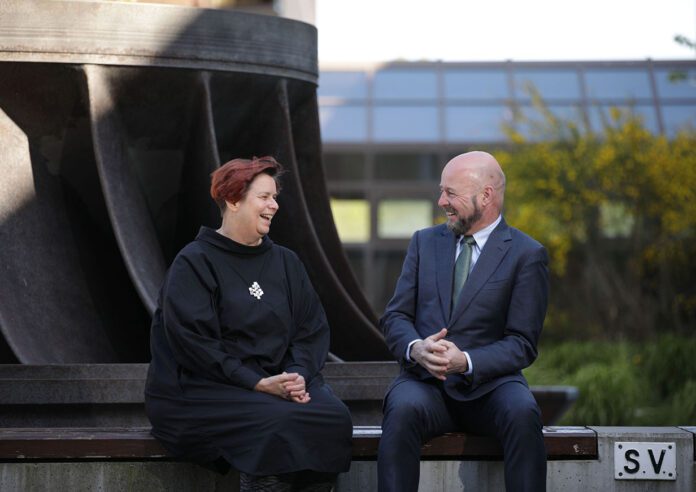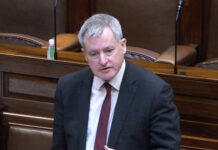
A KEY member of the group guiding the Government’s strategy on the Covid pandemic has admitted he did not communicate the Covid-19 models “as well as was necessary” in the weeks before Ireland had the world’s highest incidence of cases.
Speaking at the University of Limerick on Monday, former National Public Health Emergency Team (Nphet) member Professor Philip Nolan said that health experts needed to “be better at communicating the range of possibilities and uncertainties”.
Prof Nolan, who is Director General of Science Foundation Ireland (SFI) said the Covid pandemic clearly demonstrated the value of public investment in research.
“The pandemic clearly demonstrates the value of public investment in fundamental research across a wide range of disciplines,” he added.
“At the onset of the pandemic, when asked to build a team to monitor and model the development of the outbreak in Ireland, we were able to draw on the expertise of applied mathematicians, computer scientists, geospatial scientists, statisticians, epidemiologists and public health specialists to create the Irish Epidemiological Modelling Advisory Group (IEMAG).
“A much wider body of expertise in virology, immunology, infectious disease, psychology and behavioural science was available to NPHET and Government. We should remember that this breadth and depth of expertise was available only because of decades of public investment in our higher education and research system.”
Professor Nolan went onto emphasise the importance of increasing the level of investment in research across the full range of disciplines, and of sponsoring interdisciplinary and trans-disciplinary research.
He placed special emphasis on engaged research, research conducted in partnership with those it is intended to serve.
“It is only by coming together in partnership, across disciplines, and working in partnership with communities, practitioners, enterprises and civil society, can we hope to address really challenging problems like public health or climate change,” he added.
Professor Nolan was speaking at an event organised as part of UL Research Week, which is running until this Friday, April 29.
The event showcases work taking place at the University and looks closely at ongoing efforts to address global challenges ranging from global health to geopolitics, biodiversity and sustainability, to the future of work.









